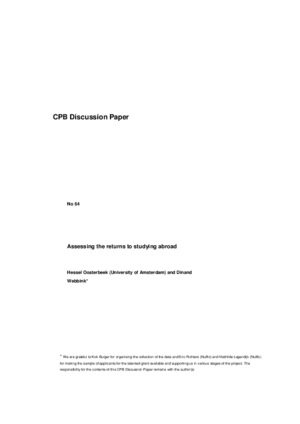Assessing the returns to studying abroad
Studeren in het buitenland kan leiden tot vestiging in het buitenland
We are sorry, unfortunately there is no English translation of this page.
The market for higher education increasingly becomes an international market. Nowadays, the number of students studying abroad is substantial and increasing.
Many governments stimulate students to study abroad by offering a wide range of grants. However, little is known on the returns to studying abroad. This paper explores the feasibility of a new approach for finding credible evidence on the returns to studying abroad.
We use a sample of graduates who applied for a specific grant for studying abroad and compare the outcomes of graduates who received the grant with the outcomes of graduates who did not receive the grant. The ranking of the applicants by the selection committee has been used to create credible control groups. We find that the grant has increased the probability of studying abroad with 23 to 42%-points and the duration of the study with 7 to 9 months. An extension of the study with 7 to 9 months increases the probability of living abroad with 30 to 39%-points. Studying abroad is associated with higher wages. However, it is not clear whether these higher wages are caused by studying abroad.
